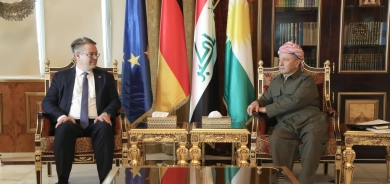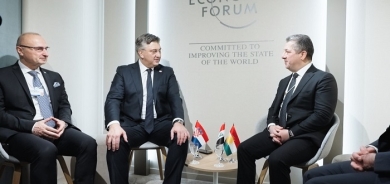Is the U.S. Souring on Maliki’s Government?

That dissatisfaction now appears to have boiled over. On March 24, Secretary of State John Kerry made an unannounced trip to Baghdad to pressure Maliki regarding Iran’s use of Iraqi airspace for flights to Syria. Washington has long suspected Tehran of sending arms to Bashar al-Assad’s government using those so-called humanitarian relief flights as a cover, and the Obama administration wanted Maliki to put a stop to them.
Kerry’s effort was, at most, a partial success. Despite some rather unsubtle reminders from the secretary of state about how important continued U.S. aid was to Iraq’s economic and political future, Maliki refused to give a commitment that air traffic between Iran and Syria would be interdicted, much less halted. Yet just two weeks later, on April 8, Iraqi authorities did compel an Iranian plane to land so that it could be searched. That action suggested that Baghdad did not wish to alienate its American ally entirely.
Much to Washington’s chagrin, though, the search turned up no contraband. Inspectors found only humanitarian aid, mostly medical supplies, just as the Iranian government had always insisted was the cargo on such flights. Suspicious pundits in the U.S. wondered whether Iraqi officials had cleared the interception in advance with Tehran to ensure that no military items would be on that flight. Whatever the truth regarding that specific incident, the episode has not restored an atmosphere of cooperation between the Obama administration and the Iraqi government.
The reality is that Maliki’s Shiite-led regime wants to maintain good relations with its co-religionists in Tehran. Indeed, Iranian influence in Iraq (except for KRG-controlled territory) has been on the rise ever since the United States and its allies overthrew Saddam Hussein and commenced their occupation of the country. Moreover, the Maliki government is not eager to see Assad’s Alawite-led government in Damascus replaced by a Sunni-dominated successor government—especially one that is beholden to Saudi Arabia and Turkey, both long-time rivals of Iraq. Baghdad is going to do the bare minimum it can to placate Washington without undermining Tehran’s effort to prop-up Assad’s rule.
The estrangement between the Obama administration and Prime Minister Maliki is almost certain to intensify in the coming months. Washington has lost faith in the Iraqi leader’s alleged commitment to democracy, much less any supposed commitment to Western foreign policy objectives in the Middle East. Maliki, for his part, is determined to consolidate his domestic political rule using any tactics (democratic or authoritarian) that seem convenient. And he is emphatically unwilling to do Washington’s bidding with regard to regional issues, especially if such action risks antagonizing his larger, more powerful eastern neighbor. The stage is set for a chill in U.S.-Iraqi relations, if not the onset of outright animosity between the two governments.
Ted Galen Carpenter, a senior fellow at the Cato Institute, is the author of nine books and more than 500 articles and policy studies on international affairs. He is also a member of the editorial board at Mediterranean Quarterly.

 Ted Galen Carpenter
Ted Galen Carpenter











